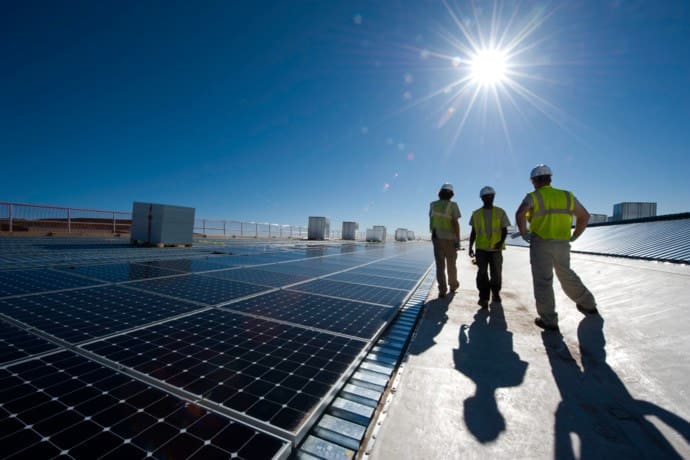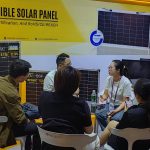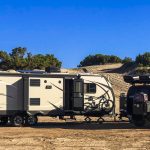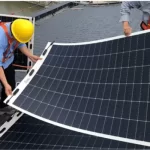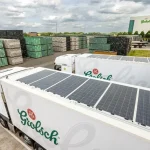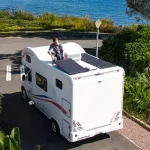Solar power systems are one of the most important ways to reduce your carbon footprint, not only by saving you money on your electricity bill but also by using it as a power reserve. But even the most durable solar panels can be affected by extreme weather.
So what steps can you take to protect your solar power system from damage before the extreme weather arrives?
Hopefully, this blog will provide some help in protecting your solar panels from damage and keeping them up and running.
Measures to protect solar panels
Although most PV panels designed by solar panel manufacturers can withstand severe weather, extreme weather such as hurricanes and hailstorms can damage your solar panels due to improper protection.
Of course, lightweight and flexible solar panels like portable solar panels and folding solar panels can be completely transferred indoors. But fixed solar panels, whether they are rigid solar panels or flexible solar panels, require you to take some protective measures.
The following measures can protect your solar panels from damage caused by extreme weather.
- Regularly inspect and maintain solar panels
Prior to hurricane or hail season, you should contact a professional solar installer to inspect your solar panels for cracks, looseness, corrosion, or other damage, and that your roof is secure and intact. If necessary, damaged parts should be replaced or repaired promptly
- Use protective covers or nets
When a hurricane or hailstorm is expected, a shield or net can be used to cover the solar panels to reduce the impact of hail or flying debris from the wind on the solar panels. The shield or net should be transparent to avoid affecting the light and power generation efficiency of the solar panel.
- Pay attention to the weather forecast
Before a hurricane or hailstorm occurs, you should pay close attention to the weather forecast for possible wind speed, rainfall, hail size, and other information so that you can take appropriate protective measures in time. If possible, disconnect the solar panels from the power supply to prevent short circuits or electric shocks.
- Use high-quality and durable solar panels
When choosing solar panels, you should pay attention to their material, thickness, strength, weather resistance, and other characteristics, and choose high-quality and durable solar panels that meet industry standards and certifications. Some solar panels have been tested to withstand wind speeds of up to 140 mph and hail the size of an inch.
- Adjust the angle of your solar panels
Depending on the latitude and season of your area, you can adjust the angle of your solar panels to make them as perpendicular to the sun’s rays as possible and reduce the impact of hail or wind on their surface. In general, the flatter the solar panel is placed, the more vulnerable it is to damage from hail or wind.

Recovery measures for solar panels after extreme weather
It is also important to inspect and repair broken solar panels in a timely manner after extreme weather ends, as serious conditions may affect the normal use or output of solar panels.
Before resuming the use of solar panels after extreme weather you should:
- Check the solar panels for cracks, breaks, peeling, and other damage.
- Test the output power and conversion efficiency of the solar panel to see if it is normal.
- Clean the surface of the solar panel of dust, dirt, snow, ice, and other debris to improve its light transmission rate and power generation efficiency.
- Check whether the electrical equipment such as connecting wires, junction boxes and inverters of solar panels are loose, broken, or short-circuited, if so, they need to be repaired or replaced in time.
- Confirm whether there are any deformation, loosening, rusting, or other problems in the mechanical equipment such as the solar panel’s bracket, fixing parts, and lightning protection equipment
If there is any damage or rupture, we recommend that you directly consult a professional installer for maintenance and repair to solve the problem, and the timely repair and replacement of the professional pair can restore the normal use of solar panels faster.
Frequently asked questions
Q: What is the impact of extreme weather on solar panels?
Extreme weather can affect the performance and life of solar panels. Extreme heat or cold weather can affect the stability of solar panels, causing damage to the modules or reducing their efficiency. As well as dust buildup on the panels from extreme weather reduces light reception thus affecting the efficiency of solar panel power generation.
Q: Aren’t rigid solar panels waterproof? Why is it necessary to take measures even for heavy rainfall?
Rigid solar panels, the most common type of rooftop solar panels, are waterproof. Breakage of the surface in extreme weather can cause rainwater to enter the interior and affect the normal use of solar panels. Taking certain protective measures can reduce the risk of breakage.
Summary
The uncontrollable nature of extreme weather can affect the normal use of solar panels to a certain extent, mainly due to damage to the panels. Protecting the panels according to our recommendations can greatly reduce this factor.
Sungold is a solar panel manufacturer with 15 years of manufacturing experience, and we offer quality solar panels that can greatly reduce the impact of extreme weather and provide you with longer and more stable service.


